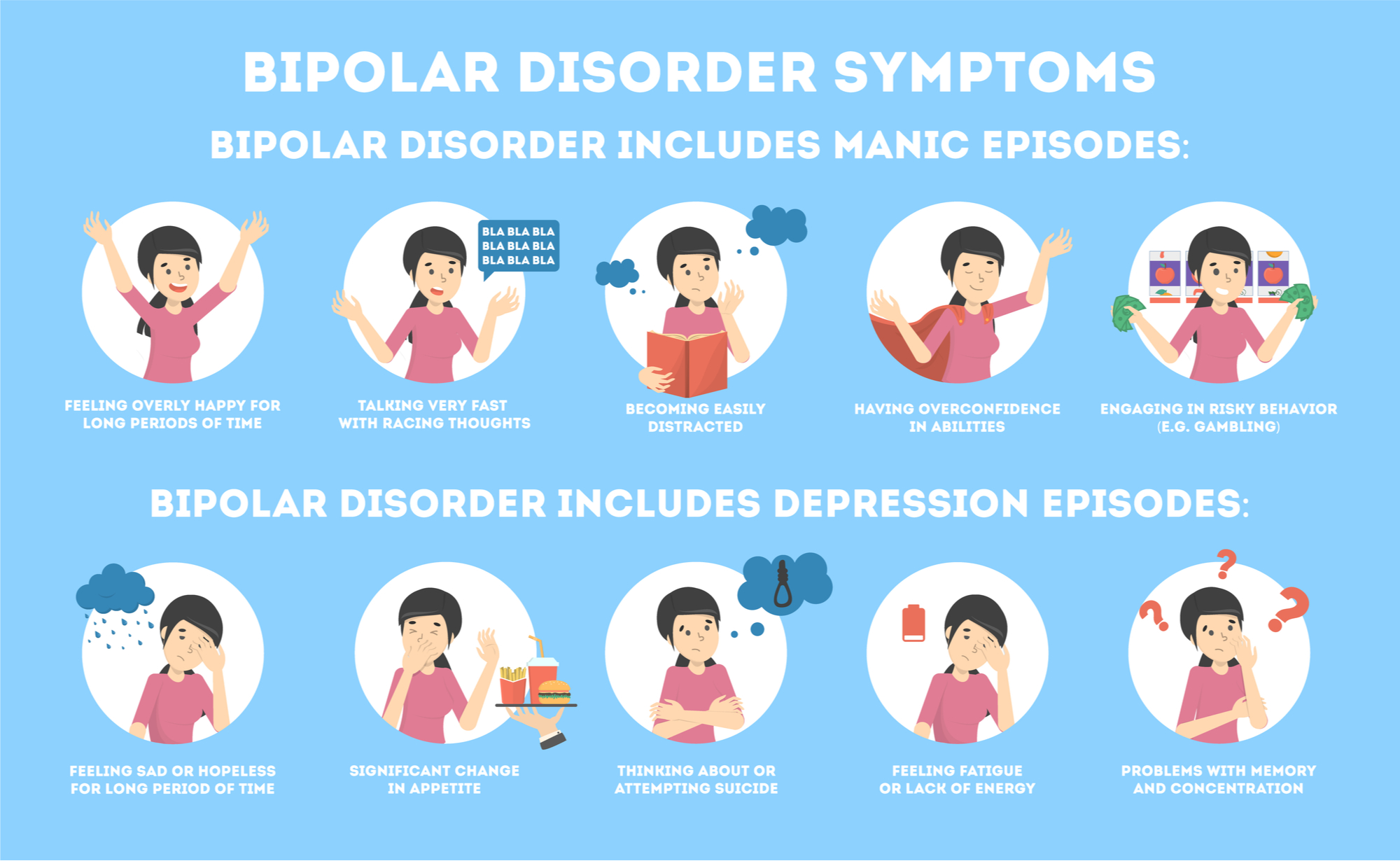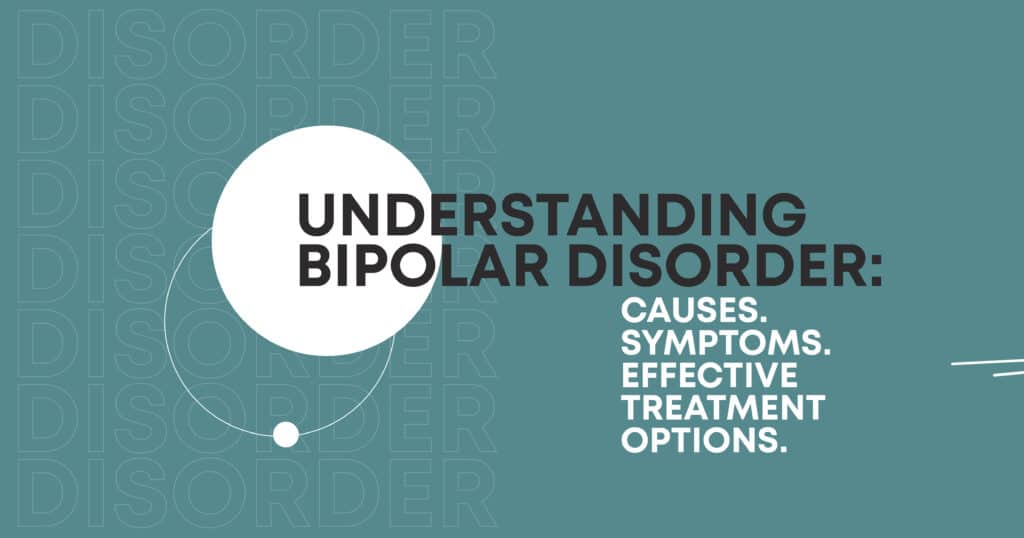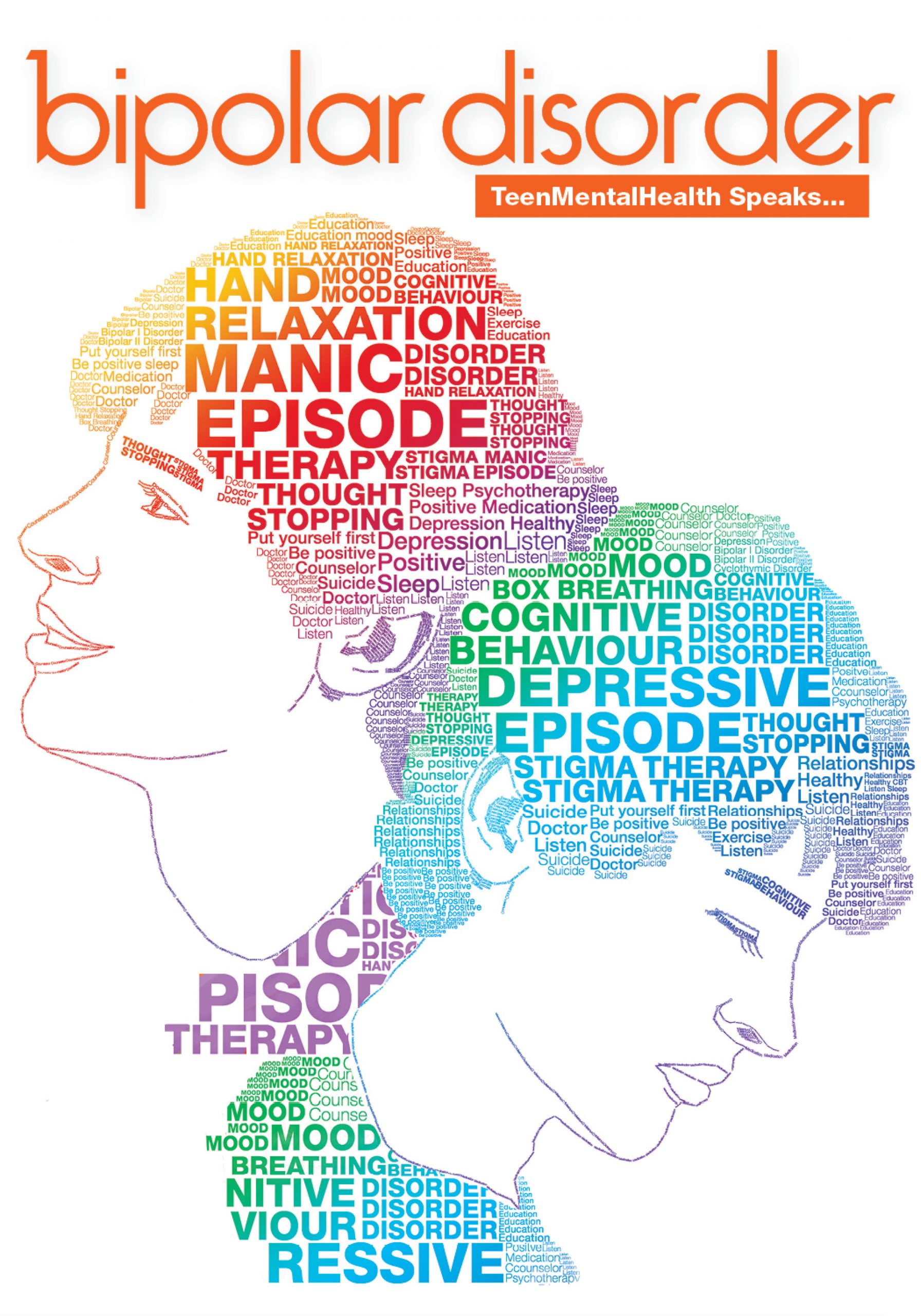Table of Contents
- Causes & Risk Factors of Developing Bipolar Disorder
- Bipolar disorder: Symptoms, causes, types, and treatment
- Bipolar Depression Disorder Symptoms & Treatment at Samarpan
- How to Treat Bipolar Disorder - E-Bipolar
- Mental illness: symptoms, types, and treatments - The Diamond Rehab ...
- November 2019 – Page 3 – Intro Psych Blog (F19)_Group 7
- Understanding the Symptoms of Bipolar Disorder in Psychiatry - Medpsych
- #415 Bipolar Disorder With Dr. Kevin Johns - The Curbsiders
- Bipolar adalah Penyakit Perubahan Mood, Ini Faktanya - Yoona
- Bipolar Disorder: Causes, Symptoms, And Treatment Options - Mental ...



What is Bipolar Disorder?



Symptoms of Bipolar Disorder



Causes and Risk Factors
The exact causes of bipolar disorder are not fully understood, but research suggests that it is a complex condition that involves a combination of genetic, environmental, and neurochemical factors. According to the StatPearls - NCBI Bookshelf, risk factors for bipolar disorder include: Family history of bipolar disorder Traumatic brain injury Substance abuse Certain medical conditions, such as thyroid disease or multiple sclerosis
Treatment and Management
While there is no cure for bipolar disorder, it can be effectively managed with treatment. Treatment typically involves a combination of medications, psychotherapy, and lifestyle changes. Medications such as mood stabilizers, antipsychotics, and antidepressants can help to stabilize mood and reduce symptoms. Psychotherapy, such as cognitive-behavioral therapy (CBT), can help individuals develop coping skills and manage symptoms. In conclusion, bipolar disorder is a complex mental health condition that requires comprehensive treatment and management. The StatPearls - NCBI Bookshelf provides a wealth of information on bipolar disorder, including its diagnosis, treatment, and management. By understanding the symptoms, causes, and treatment options for bipolar disorder, individuals can better manage their condition and improve their overall quality of life.For more information on bipolar disorder, visit the StatPearls - NCBI Bookshelf or consult with a healthcare professional.
Note: This article is for informational purposes only and should not be considered as medical advice. If you or someone you know is experiencing symptoms of bipolar disorder, please seek professional help.